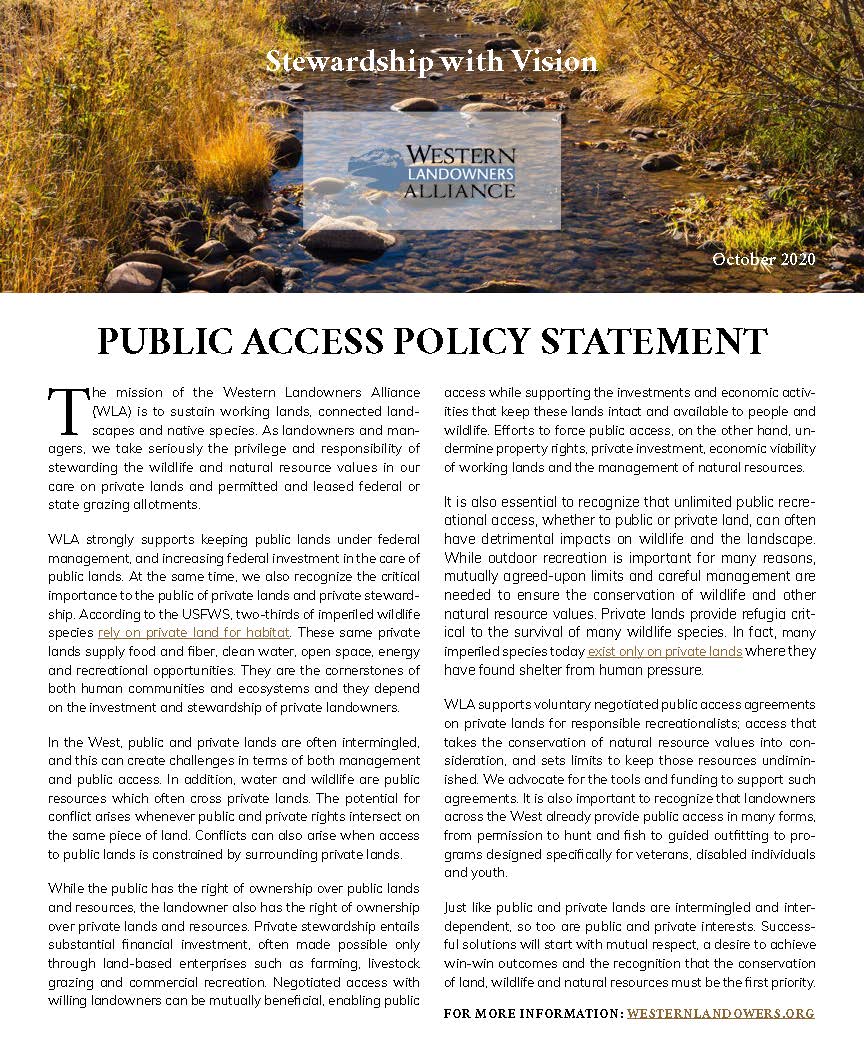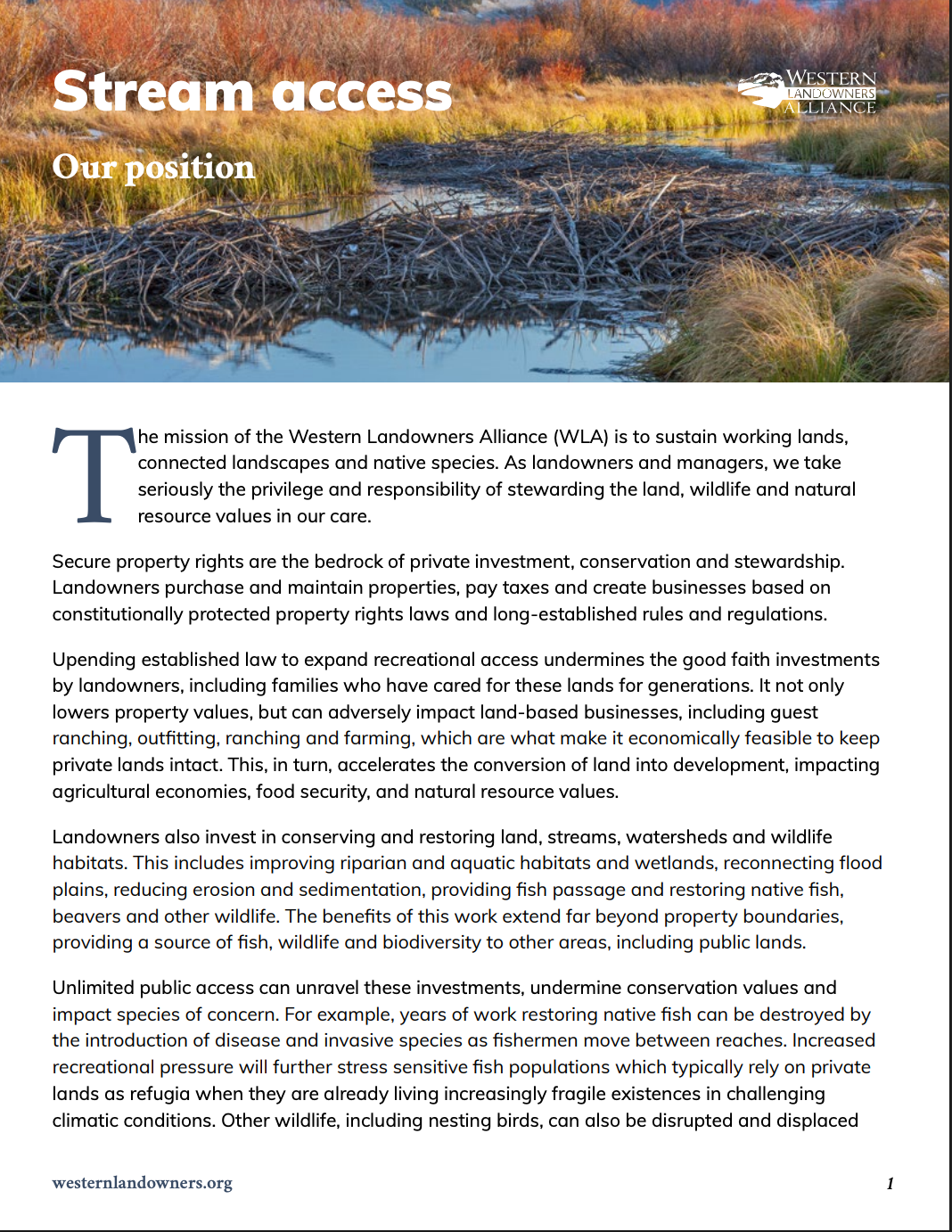
Our Position
WLA's Public Access Policy Statement
WLA strongly supports keeping public lands under federal management, and increasing federal investment in the care of public lands. At the same time, we also recognize the critical importance to the public of private lands and private stewardship. Just like public and private lands are intermingled and inter-dependent, so too are public and private interests. Successful solutions will start with mutual respect, a desire to achieve win-win outcomes and the recognition that the conservation of land, wildlife and natural resources must be the first priority.
Sign up to Protect Private Property and Healthy Ecosystems
By joining the Western Landowners Alliance, you are adding your voice to those who seek responsible solutions to public access-private property conflicts that put the conservation of land, wildlife, and natural resources first.
ISSUE ALERT
Increasing demands for public access to and through private lands threaten biodiversity, ecosystem health and property rights.
In the West, public and private lands are often intermingled, and this can create challenges in terms of both management and public access. In addition, water and wildlife are public resources which often cross private lands. The potential for conflict arises whenever public and private rights intersect on the same piece of land. Conflicts can also arise when access to public lands is constrained by surrounding private lands.
The most significant casualty in the battle over public access to private lands ends up being the fish and wildlife that depend on private lands and landowner investments. According to the USFWS, two-thirds of imperiled wildlife species rely on private land for habitat.
We also have to recognize that conservation and recreation are not one and the same. The question needs to be asked: what are recreationalists personally giving back relative to the impacts we are generating?
WLA supports voluntary negotiated public access agreements on private lands for responsible recreationalists; access that takes the conservation of natural resource values into con- sideration, and sets limits to keep those resources undiminished. We advocate for the tools and funding to support such agreements. It is also important to recognize that landowners across the West already provide public access in many forms, from permission to hunt and fish to guided outfitting to pro- grams designed specifically for veterans, disabled individuals and youth.
Just like public and private lands are intermingled and inter- dependent, so too are public and private interests. Successful solutions will start with mutual respect, a desire to achieve win-win outcomes and the recognition that the conservation of land, wildlife and natural resources must be the first priority.
Issue Alert
Protect Colorado's Streams
The Colorado Stream Access Coalition is working to open all streams in Colorado to public access for boating, fishing and swimming. You can learn more about their agenda here. Western Landowners Alliance (WLA) is deeply concerned about the implications of this effort for private landowners, agriculture, guest ranching and outfitting, watershed health, land conservation, wildlife and fisheries.

©2026 Western Landowners Alliance • PO BOX 27798, Denver, CO 80227 • 505.466.1495
Western Landowners Alliance is a 501 (c)(3) non-profit recognized by the IRS.
Tax ID: 46-1346488